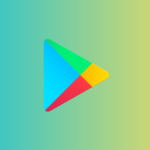OpenAI has unveiled a new Apps SDK and an in-chat app ecosystem that allows users to launch and interact with third-party apps directly within ChatGPT. The announcement came during the company’s annual DevDay 2025 event, marking a significant expansion of ChatGPT’s capabilities beyond text-based responses.
The new system enables users to call on apps like Spotify, Canva, Zillow, Coursera, Expedia, Booking.com, and Figma using natural language prompts. For example, users can ask, “Spotify, make a playlist for my party,” or “Zillow, show me homes for sale in Seattle,” and access interactive interfaces without leaving ChatGPT.
According to OpenAI, these apps “fit naturally into conversation,” surfacing when relevant or being invoked by name. The company described them as a step toward a new generation of interactive, adaptive, and personalized applications that blend text-based dialogue with embedded visuals, maps, and video.
At the center of this rollout is the Apps SDK, a developer toolkit that allows third parties to create and test apps that integrate directly with ChatGPT. The SDK is built on the Model Context Protocol (MCP) — an open standard that connects AI models to external tools and data sources.
Developers can define their app’s logic and design, connect to their own backends, and build custom interactive interfaces. Apps can appear as lightweight cards in the chat, open in fullscreen mode for immersive experiences, or run picture-in-picture for activities like watching videos or taking courses.
The SDK is currently available in preview, with developers able to experiment through Developer Mode in ChatGPT. OpenAI said it will begin accepting official app submissions later this year and plans to launch a dedicated app directory where users can browse and discover integrations.
OpenAI has already partnered with several companies across entertainment, education, design, and real estate. Early examples include Canva for creating slide decks, Coursera for learning, and Zillow for browsing property listings.
In a live demonstration, OpenAI engineers showed how ChatGPT could coordinate between multiple apps within the same chat — such as using Canva to generate business materials and then Zillow to find expansion opportunities for that business in another city.
More partners — including Uber, Target, Peloton, AllTrails, OpenTable, and theFork — are expected to launch integrations later this year. The apps are currently available to logged-in users of ChatGPT’s Free, Go, Plus, and Pro tiers outside the European Union, with access for Business, Enterprise, and Education users planned for later in 2025.
The new app ecosystem also introduces a commercial component. Developers will eventually be able to charge users for in-chat app access through OpenAI’s upcoming Agentic Commerce Protocol, which supports instant checkout directly within ChatGPT.
OpenAI has emphasized that all apps must comply with strict safety, privacy, and usability standards. Developers are required to provide clear privacy policies, collect only essential user data, and obtain explicit consent before connecting an app. Apps that misrepresent their function, crash frequently, or violate OpenAI’s usage policies can be removed at any time.
Despite these assurances, questions remain about how much user data will be shared with third-party developers and whether ChatGPT itself can access or train on app-generated data. OpenAI said further privacy controls will be introduced later this year.
By embedding third-party apps directly into its interface, OpenAI is positioning ChatGPT as more than a chatbot — effectively transforming it into a conversational operating system.
The integration of interactive apps, commerce, and AI-powered context means users could soon plan trips, design materials, or enroll in courses without switching platforms. For developers, it represents access to over 800 million ChatGPT users who can discover apps organically through everyday conversation.
As OpenAI CEO Sam Altman described it, the Apps SDK and in-chat integrations “will enable a new generation of apps that are interactive, adaptive, and personalized — that you can chat with.”







Comments
Loading…